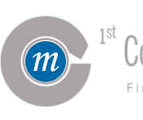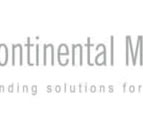 |
 |
 |
 |
mortgage loan programs available in: Alabama, Alaska, California, Colorado, Florida, Montana, Indiana, Louisiana, Maryland, Minnesota, Mississippi, Missouri, New Mexico, North Carolina, North Dakota, Pennsylvania, South Carolina, South Dakota, Tennessee and Texas |
||
 |
FHA home loans: | FHA home buyer | streamline refinance | mobile home loans | reverse mortgage |  |
 |
 |
 |
 |
 |
 |
|
 |
mortgage loans: | home purchase | Mortgage Refinance | home equity loans | jumbo mortgage |  |
 |
 |
 |
 |
 |
 |
 |
| FHA loans » | |||||||
|
|
Mortgage Loan Closing CostsAn overview of closing costs associated with FHA, Conventional, and Jumbo loan programs.
The mortgage loan closing costs for an FHA loan, conventional mortgage, or a jumbo loan program -- while they can vary by state -- all comprise the same structure, whether for purchase, refinance, or HELOC loan type. This page on closing costs is very important for you. Please take 5 minutes to read through this entire page so you will better understand the mortgage process. The costs to close your home loan are fully disclosed on your GFE (Good Faith Estimate) and should be reviewed with you by your mortgage originator prior to the ordering of an appraisal (if needed) or within three business days of your application. Lender-related fees are the costs to the borrower for consultation and the time and resources associated with completing the loan transaction. Many home buyers and homeowners are not aware that almost all loan originators and loan processors only get paid when your loan closes, no matter how many hours they worked on your behalf. If a loan doesn't close, or you leave them half way through the processing of you loan, they've worked for free. Other personnel, who are wage based, are dependent upon loans closing in order for a mortgage company to fund payroll. When you look at the closing costs for your FHA, conventional, or jumbo mortgage, each section of the GFE reflects various associated closing costs. Again, many consumers and "financial experts" don't realize that 70% to 80% of your costs to close are third party costs outside the control of the mortgage originator or lender. Further, these other third party costs are many times controlled by the borrower or the seller. Breaking Down Closing CostsBasically, there are four sections of costs associated with closing your loan. Each section has its own set of fees that are reflective of lender requirements, title company/attorney requirements,or government requirements. Do keep in mind that these fees will vary by the mortgage loan program, property type, and state. HUD's original intent of the required GFE was for it to have the True and Total closing cost fully disclosed to the borrower within an amount of time sufficient for allowing the borrower to make a sound financial decision. Today, based upon "faulty financial advice," many borrowers use these GFEs to shop lenders. As a borrower, you should be aware that these factors play a large role in the accuracy of your GFE!
As you can see, using a GFE for shopping doesn't look like such a good idea once you understand just how much variation can occur based upon all of the variables that really depend upon your financial information and property choice. This is especially the case for home buyers! So what's important when comparing GFE closing costs?
Unfortunately, many consumers don't receive (or believe) the counsel they need from their mortgage originator or real estate agent. In other instances, some lenders and brokers have attempted to "avoid" this process of providing you with full and accurate disclosures, using the fact that it was an "estimate" to not fully disclose what your real closing costs will be and what factors can really impact your final costs to close. In order for a mortgage originator to facilitate this GFE accuracy, they really must have an application, credit report, and full client consultation. Too many customers have been mislead into believing shopping on rate is the most important thing, when in fact, it's far more important to work with someone who has integrity and provides you with sound counsel on the risks associated with any given mortgage product. Yes, your interest rate is important; however, getting the right mortgage, receiving the true costs for the services you're paying for, and getting sound counsel can be far more valuable than an eighth of a percentage difference in rate. Just ask the millions of Americans who've lost their homes due to bad advice from "financial experts" and an obsession with getting the lowest interest rate instead of the safest mortgage product. Below are samples of Loan Costs you should look for whenever you get a GFE from anyone. The items with a "*" represent typical third party charges. Underwriting, Loan Processing, Wire Transfer, *Courier, *Federal Express, Loan Origination, Points, *Credit Report, Application, *Flood Certification, Tax Service, Funding, Prepaid Interest, and Commitment Fee. *Title Company/Attorney Fees: Settlement, Closing, Title Search, Title Inspection, Warehouse, Insurance Binder, Owner Policy, Lender Policy, Document Prep, Notary, Attorney, Form 9, Alta 8.1, and Alta 5.1. *Gov't Related Costs: Recording Fees, County/City Doc Tax, State Doc Tax, Appraisal, Survey, Termite Inspection, and Home Inspection. *Escrows: Property Taxes, Home Owner Insurance, and Flood Insurance. So in closing, when selecting a company and mortgage originator to work with, please keep in mind the fact that our originators and loan processors are working for free until you close. Let's face it -- unless we're working for a great cause, nobody wants to work for free. So be selective at the start and loyal to the end. Many of you, through the process, will be tempted by real estate agents and fancy advertisements to change firms for no reason other than "they want you to use their guy"or "a tempting rate flashed on the TV." What if our originator or loan processor provides you with bad service? They deserve to be fired! Outrageous fees or an exorbitant interest rate? Kick them to the curb. However, if you've received great service throughout, great counsel, and you still fire them after all of the time and energy they've invested in helping you...well, karma always has a way of balancing out the equation. |
||||||
